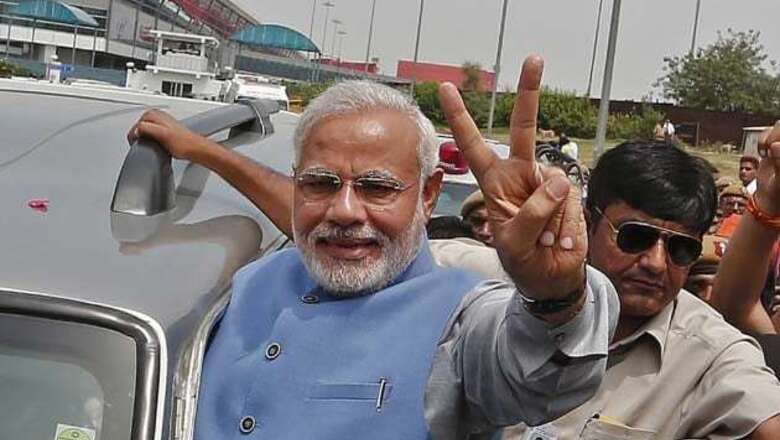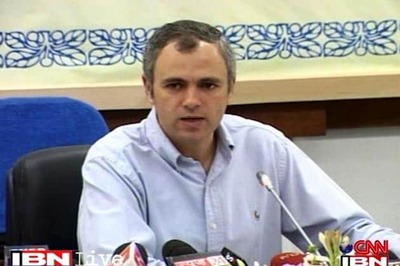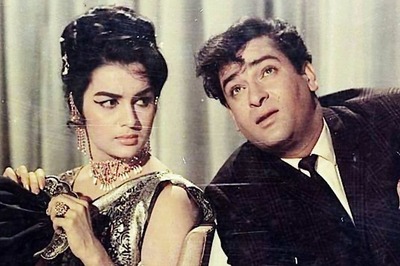
views
By inviting the South Asian Association for Regional Cooperation (SAARC) leaders to his swearing-in ceremony, Prime Minister-designate Narendra Modi has sent out a powerful message on foreign policy. After an electoral campaign where "Candidate" Modi had made several disquieting statements about the region - from criticising Bangladesh for its treatment of the Hindu minority and on illegal immigrants, to threatening Pakistan over the export of terror and firing at the Line of Control (LoC), it would seem as if Prime Minister-designate Modi wants to start on a fresh page. After all, the irony would be lost on none; that after criticising caretaker Prime Minister Manmohan Singh for "serving biryani to the former Pakistan PM," Mr. Modi will now preside over his first banquet in office to which he has invited the Pakistan Prime Minister, Nawaz Sharif. To then give the South Asian neighbourhood such importance right at the start of his term is indeed a significant step.
India's record of engagement
The other important move he has made is a quieter one - calling all economic ministries, to which the external affairs ministry could soon be included, to send in reports on policies that the United Progressive Alliance (UPA) failed to implement, as well as the impractical policies it adopted. In fact, there are many parts in his predecessors' foreign policy book that Mr. Modi might well want to take a leaf out of.
The first is Dr. Singh's creative thinking on the neighbourhood. Despite India's many broken promises of the past decade, Dr. Singh will be remembered as a leader with both vision and a heart, even as the Indian foreign policy establishment learnt to give more than it sometimes received from its neighbourhood. Whether it was Dr. Singh's focussed drive for better relations with Pakistan, or Indian concessions on trade with Bangladesh, or the massive reconstruction and infrastructure-building efforts undertaken in Afghanistan and Sri Lanka, India's SAARC engagement has helped its standing in the region.
The other feature that marked Dr. Singh's tenure was his loyalty to multilateral forums in the face of opposition. It was not just SAARC and the Non-Aligned Movement but also the building of BRICS (along with Brazil, Russia, China and South Africa) that gave India a prominence on the world stage that held it in particular stead in the past few years. It remains to be seen if Mr. Modi will place as much weight on India's bid for a UN Security Council permanent seat, or if that is even desirable, but it is important for India to be seen as dealing with the world on its own terms. To that end, Mr. Modi will engage with BRICS leaders as early as mid-July, when he is expected to travel to Brazil to attend the summit along with Russian President Putin and Chinese President Xi Jinping.
Stepping up economic diplomacy
Perhaps the part of Dr. Singh's foreign policy that Mr. Modi will most want to take forward will be the focus of the economist prime minister on economic diplomacy. This is one aspect "Candidate" Modi has been most positive about, on show even at a lecture he delivered at the University of Madras last year entitled "India and the World." "A strong economy is the driver of an effective foreign policy," he is quoted as saying. "We have to put our own house in order that the world gets attracted to us."
Later this year, Mr. Modi will be invited to the G20 in Australia, where his economic policies of the next few months will be tested on the world stage. Interestingly, the other part of Dr. Singh's economic diplomacy is the quest for nuclear energy as an alternative source, and officials in Canberra will hope that Mr. Modi's visit will also see the signing of the India-Australia uranium deal.
Meanwhile Mr. Modi's push for "economic officers" in every embassy could pave the way for a much needed revision of the Indian Foreign Service's size. In 2012, the Ministry of External Affairs (MEA) recorded a strength of about 815 officers, a fraction of the roughly 20,000 the United States has, or the 5,000 that China appoints. Built into that will be the need for more "lateral entrants," experts on regions, security and trade from other services, as well as from outside the government, who could then be posted worldwide.
In these endeavours, Mr. Modi will not have to carry many of the burdens of his predecessor. To begin with, his electoral mandate means that he isn't dependent on the approval of State governments that could try to block him, in the manner in which the Mamata Banerjee government blocked the United Progressive Alliance (UPA) on the Teesta deal with Bangladesh, or the Dravida Munnetra Kazhagam (DMK) and the All India Anna Dravida Munnetra Kazhagam (AIADMK) governments in Tamil Nadu threatened ties with Sri Lanka over the UNHRC vote. While Mr. Modi has often said that he wants State governments to drive foreign policy with the neighbouring country concerned, he is hardly likely to regard their opposition to policies he chooses, as is clear from his decision to invite Sri Lankan President Rajapaksa for his swearing-in despite the Tamil Nadu Chief Minister's statement of protest. Moreover, if he decides to build better business ties with Pakistan, he will only be helped by governments in Punjab and Jammu and Kashmir who stand to gain from border and LoC trade.
Unlike Dr. Singh, Mr. Modi's policies will be unchallenged by his party. The Congress party's disavowal of the Sharm el-Sheikh declaration will probably stand out as a watershed moment in Dr. Singh's foreign policy, and he never quite stopped looking over his shoulder after that on ties with Pakistan. If UPA-II began on that note, it ended with Dr. Singh's humiliation on the international stage, when hours before his meeting with US President Barack Obama in Washington, his party's vice-president Rahul Gandhi addressed a press conference "tearing up" his government's policy ordinance on corruption. Mr. Modi's tight control over the Bharatiya Janata Party, which was clear during his electoral campaign indicates that the party will probably not undermine him in that manner.
Nor will Mr. Modi be hampered by the opposition that Dr. Singh had. The Congress is not just short of numbers to do so; leaders of the party will hardly oppose the National Democratic Alliance's policies, if they choose to forge ahead on ties in the neighbourhood with anything nearing the ferocity with which the BJP and the Left parties ripped into Dr. Singh's foreign policy initiatives on Pakistan and the US respectively.
Perils of the past
Despite all that, Mr. Modi faces the perils of the past - terror groups for example, and some within the establishment in Pakistan who will attempt to sabotage any plans for peace talks with an attack. Already, the attack on the Indian consulate in Herat is being chalked up to Inter Services Intelligence (ISI)-backed Taliban elements. Moreover, every skirmish at the LoC with Pakistan or the Line of Actual Control (LAC) with China will also be looked at closely by those who expect a tougher stance from Mr. Modi; he will have to establish a stronger control of the narrative that has often been left to the military and security establishments in the past few years.
Some of the perils arise from Mr. Modi's own past and his record on the 2002 Gujarat riots. As a result, his government's actions on internal disturbances - riots and insurgencies - will be scrutinised by India's neighbours for any hint of "majoritarian" bias. Given that in SAARC today (Afghanistan, Bangladesh, Bhutan, the Maldives, Nepal, Pakistan and Sri Lanka) religious majorities and sectarian politics tend to dominate the political power structure, India could well serve as the template, with these countries looking to Mr. Modi's tenure to justify or modify their own actions.
As a result of all this, Mr. Modi's swearing-in could well serve as a kick-off point for a new foreign policy regime for South Asia; that is, if he desires to make a break with past precedents. "For time and the world do not stand still," said US President John F Kennedy in his famous "Change is the law of life" speech delivered in Frankfurt in 1963. "And those who look only to the past or the present are certain to miss the future."



















Comments
0 comment